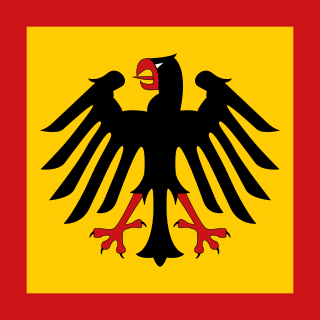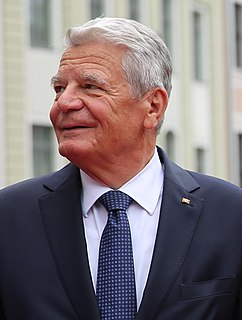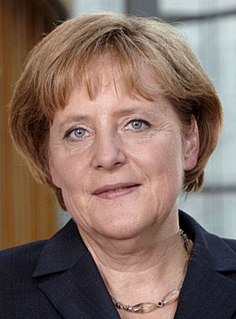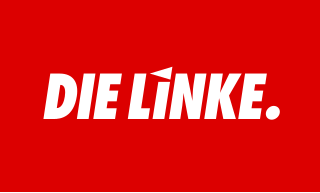| ||||||||||||||||||||
| ||||||||||||||||||||
| ||||||||||||||||||||
 |
|---|
| This article is part of a series on the politics and government of Germany |
|
| Foreign relations |
An early indirect presidential election (officially the 15th Federal Convention) was held in Germany on 18 March 2012, the last possible day following the resignation of Christian Wulff as President of Germany on 17 February 2012. Joachim Gauck was elected on the first ballot by a Federal Convention, consisting of the 620 members of the Bundestag and an equal number of members selected by the states of Germany based on proportional representation. [1] [2] [3] [4]
An indirect election is an election in which voters do not choose between candidates for an office, but elect people who then choose. It is one of the oldest forms of elections, and is still used today for many presidents, cabinets, upper houses, and supranational legislatures. Presidents and prime ministers can be indirectly elected by parliaments or by a special body convened solely for that purpose. The election of the executive government in most parliamentary systems is indirect: elect the parliamentarians, who then elect the government including most prominently the prime minister from among themselves. Upper houses, especially of federal republics, can be indirectly elected by state legislatures or state governments. Similarly, supranational legislatures can be indirectly elected by constituent countries' legislatures or executive governments.

Christian Wilhelm Walter Wulff is a German politician and lawyer. He served as President of Germany from 2010 to 2012. A member of the Christian Democratic Union, he served as Prime Minister of the state of Lower Saxony from 2003 to 2010. He was elected President in the 30 June 2010 presidential election, defeating opposition candidate Joachim Gauck and taking office immediately, although he was not sworn in until 2 July.

The President of Germany, officially the Federal President of the Federal Republic of Germany, is the head of state of Germany.
Contents
- Background
- Procedure
- Candidates
- CDU, CSU, FDP, SPD, Greens, Free Voters and SSW
- Minor parties
- Federal Convention
- Results
- Reactions
- References
On 19 February 2012, Joachim Gauck was nominated as the joint presidential candidate of the governing coalition (CDU, CSU, and FDP) and the opposition (SPD and Greens). [5] He also had the support of the Free Voters and the South Schleswig Voter Federation.

Joachim Wilhelm Gauck is a German politician and civil rights activist who served as President of Germany from 2012 to 2017. A former Lutheran pastor, he came to prominence as an anti-communist civil rights activist in East Germany.
The Christian Social Union in Bavaria is a Christian-democratic and conservative political party in Germany. The CSU operates only in Bavaria while its larger counterpart, the Christian Democratic Union (CDU), operates in the other fifteen states of Germany. It differs from the CDU by being somewhat more conservative in social matters. The CSU is considered an effective successor of the Weimar-era Catholic Bavarian People's Party (BVP).

The Free Democratic Party is a liberal and classical liberal political party in Germany. The FDP is led by Christian Lindner.















